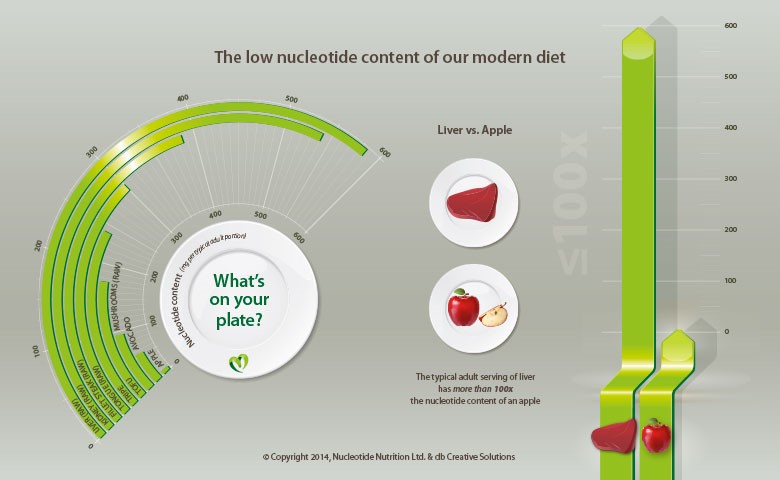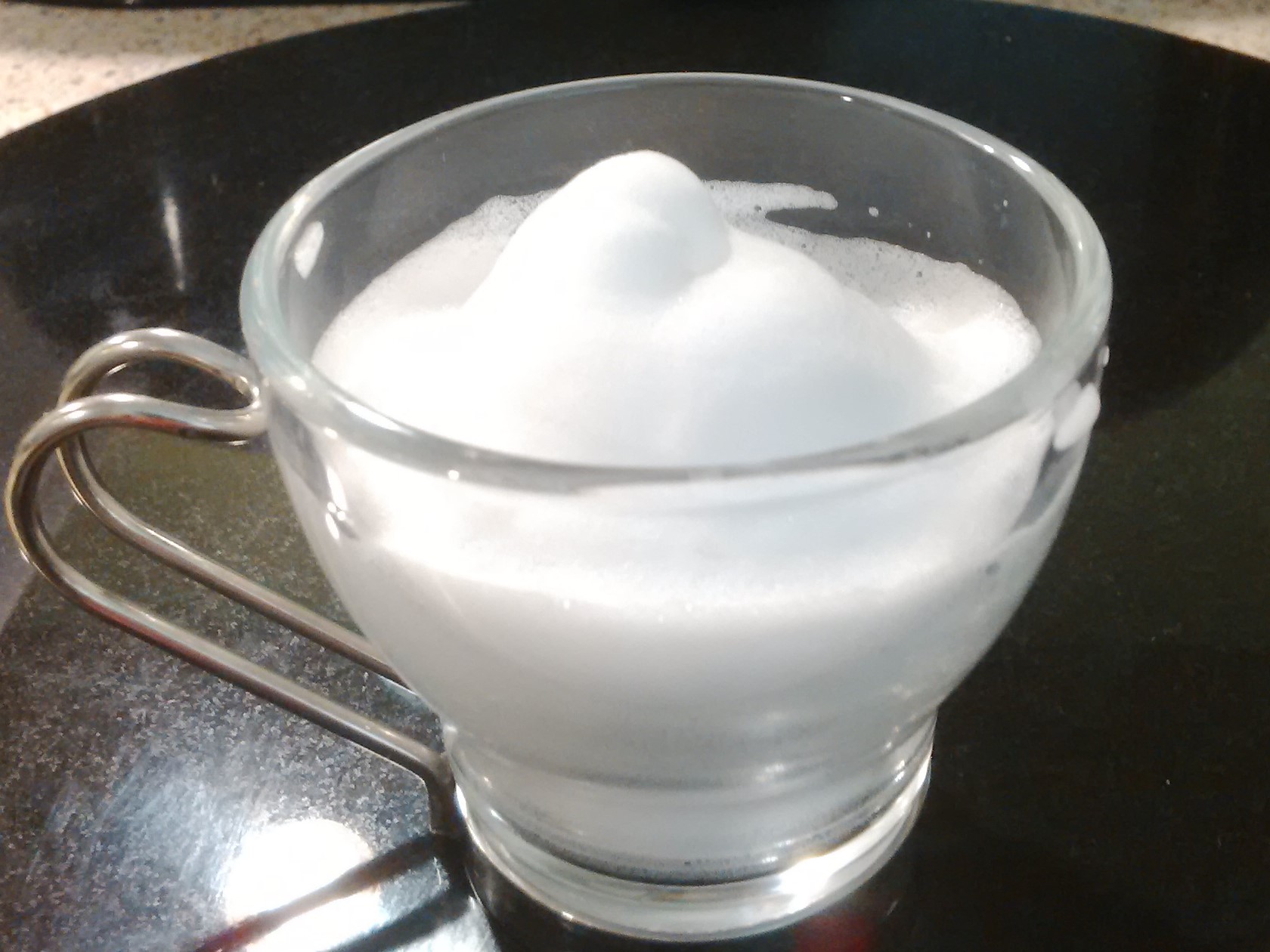The Essentiality of Nucleotides.
By Rachel Hoyle CEO, Nucleotide Nutrition Ltd
A category of micro-nutrients until now considered only “conditionally essential” might be about to be recognised as being seminally important for good health. Based on its plethora of properties and activities, ranging from its role in DNA repair to gut mucosal repair and immune function, to name but a few, it may be just a matter of time before it is generally regarded as “essential”. These micro-nutrients are nucleotides.
What are nucleotides?
Nucleotides are ubiquitous, low molecular weight, intracellular compounds that are best known as the key structural components of the “molecule of life”, DNA (deoxyribose), as well as the closely related ribonucleic acid (RNA), which performs critical functions in coding, decoding, regulation and expression of genes. They are comprised of a nitrogenous base (=nucleobase), a pentose sugar (ribose or deoxyribose) and one to three phosphate groups.
When does the body demand nucleotides?
Research reveals clear evidence for a particularly high nucleotide requirement at times where there is a high requirement of new cells, especially in situations of rapid growth, malnutrition, infection and injury. Indeed, the essentiality of this category of nutrients for infant has been recognised for many years.
Lessons from our evolution:
There is now consensus that early hominids were likely reliant on animal foods, to provide protein and also amino acids and other micronutrients. Animal foods would have consisted of muscle tissue and fat, brains, viscera, bone marrow and organs. From an evolutionary perspective then is becomes relevant to compare the likely nucleotide content of our modern, Western diet with those of ancestral diets. Organ meats and offal are among the highest sources of nucleotides, and that these sources are now largely excluded from the modern, Western diet. There are also considerable differences in nucleotide profiles of different protein sources. It is therefore clear that current lifestyle diets are much lower in nucleotides than our ancestors’ diets. And to what detriment to our health and immunity? So, the proposition is that it is not just babies who need nucleotides to flourish.
What can we learn from our veterinary colleagues?
Progressive pig and fish farmers have for more than 20 years understood the value of adding carefully balanced nucleotide additives to their animals’ feed. The addition of nucleotides is known to maintain the quality and immune health of their stock while decreasing, or even eliminating, use of antibiotics.
A case for nucleotides?
Dietary simplification due to the industrialisation of the human food supply is considered by scientists to be contributing to increased incidence of preventable chronic, inflammatory diseases, which now place the greatest stress on our healthcare systems. Poor food and lifestyle choices exacerbate this problem resulting in a population with inadequate nucleotide levels and diversity. Reverting to levels of dietary nucleotides associated with our pre-agricultural past, when offal was an important element of our meat intake, now appears to be a major challenge for most of us.
Data released by DEFRA from the National Food Survey on 18 February 2016 shows the rapidly changing diets and food culture of the UK between 1974 to 2014. This has been widely reported e.g. The BBC – “The fall of liver – People used to really like eating liver. In 1974 a typical household bought 36g of it per week. But not by 2014. Then the figure had fallen to just 3g – a 92% drop. Offal – familiar to a wartime generation that eschewed waste – had fallen out of favour among younger, more squeamish Britons.”
In his article “Science births recognition of dietary nucleotides as a new nutrient group” Dr Robert Verkerk stated that, if you evaluate our ancestral diets, it’s not at all difficult to find levels of 50 mg/kg body weight (of nucleotides) or more. Based on years of clinical experience, as well as from their use in animal feed, a total dietary intake that equates to around 25-50 mg/kg body. Given the reduced consumption of nucleotide-laden offal in today’s diet, nucleotides are becoming more than just conditionally-essential in times of stress, illness and trauma.
For most of us, this will require a supplementary intake of at least 750 mg balanced nucleotides from a good quality supplement.
Supplementary intake, for many, remains one of the few reliable methods of ensuring consistent nucleotide intake.
Clinical and scientific studies show that those likely to benefit the most from supplementary nucleotides are:
- IBS/IBD sufferers
- Those suffering dysbiosis of the gut microbiota
- Those with immune challenge from infection or exercise-induced stress
- Trauma victims
- Athletes, professional or amateur
It is becoming clear that fundamental nutritional benefits associated with nucleotides, such as DNA repair, cancer risk reduction, and gastrointestinal and immune health, would be well served by consistently elevated intake of those invaluable DNA spare parts that our dietary choices are putting us in short supply of.
By Rachel Hoyle, CEO, Nucleotide Nutrition Ltd





